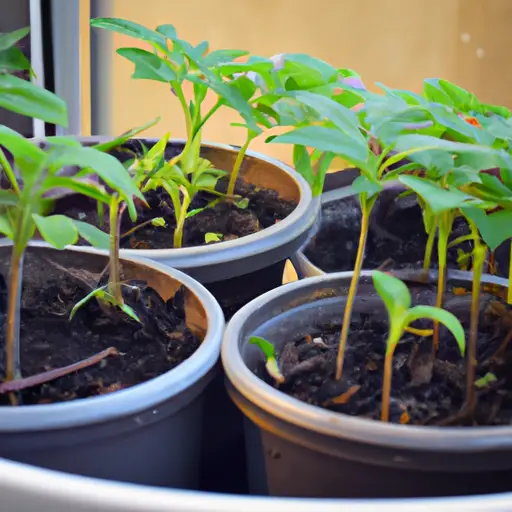Effective Pest Management Strategies for Healthy Container Gardens
Container gardening has become increasingly popular in recent years. It offers a convenient way to grow plants, flowers, and even vegetables when space is limited or there is no access to a traditional garden. However, container gardens are also susceptible to pests that can damage or destroy the plants if left unmanaged. It is crucial to have effective pest management strategies in place to ensure the health and vitality of your container garden. In this article, we will explore some proven methods to keep your container garden pest-free.
1. Choose the Right Containers: Selecting the appropriate containers for your garden can play a significant role in pest management. Opt for high-quality containers made from materials like ceramic, metal, or thick plastic that are less likely to crack or break easily. Containers with drainage holes can prevent overwatering and reduce the risk of attracting pests that thrive in damp environments.
2. Use Healthy Soil: The soil you use in your container garden should be of good quality and free from pests and diseases. Avoid reusing soil from previous seasons, as it may harbor pests or fungal spores that could harm your new plants. Instead, opt for fresh potting mix that provides adequate nutrients while ensuring proper drainage.
3. Practice Proper Watering Techniques: Overwatering can create a favorable environment for pests such as fungus gnats and root rot-inducing pathogens. To avoid these issues, water your container plants properly by allowing the soil to dry out slightly between waterings. Stick your finger into the soil; if it feels dry up to your first knuckle, it’s time to water again.
4. Implement Crop Rotation: Rotating crops is an effective strategy used in traditional gardening, but it can also be applied to container gardens. Growing different plants in each season helps prevent pest buildup since insects typically target specific plant species. By mixing up what you grow in your containers each year, you make it harder for pests to establish a population.
5. Attract Beneficial Insects: Welcome beneficial insects to your container garden, as they act as natural predators for many common pests. Ladybugs, lacewings, and praying mantises are examples of beneficial insects that feed on harmful pests like aphids and caterpillars. Encourage their presence by planting flowering plants that attract them, such as marigolds or sweet alyssum.
6. Monitor Your Plants Regularly: Regular monitoring is crucial for early pest detection and prevention of an infestation. Inspect your plants regularly, paying close attention to the underside of leaves where pests tend to hide. If you spot any signs of pest damage, promptly take action to prevent the issue from spreading.
7. Handpick Pests: For smaller infestations or when dealing with larger pests like slugs or caterpillars, handpicking can be an effective method to control their numbers naturally. Wear gloves if necessary and manually remove the pests from your plants.
8. Natural Remedies: There are several natural remedies available that can help control pests in your container garden. Neem oil is commonly used for its insecticidal properties and can be sprayed on plants as a preventive measure or to combat existing infestations. You can also make DIY insecticidal soap by mixing mild dish soap with water and spraying it on affected plants.
9. Use Physical Barriers: Installing physical barriers can be an effective way to prevent certain pests from accessing your container garden. For example, floating row covers can protect against flying insects like aphids or cabbage moths, while copper tape acts as a deterrent for slugs and snails.
10. Know When to Seek Professional Help: Despite your best efforts, some pest problems may require professional intervention. If an infestation persists or becomes overwhelming despite implementing various management strategies, consider seeking assistance from a qualified pest control specialist who specializes in organic or eco-friendly solutions.
In conclusion, maintaining a healthy container garden requires an effective pest management plan. By implementing the strategies mentioned above, you can protect your plants from pests and safeguard their overall health and productivity. Remember to regularly monitor your garden, use natural remedies whenever possible, and seek professional help when necessary. With proper care and attention, you can enjoy a pest-free, thriving container garden all year round.













